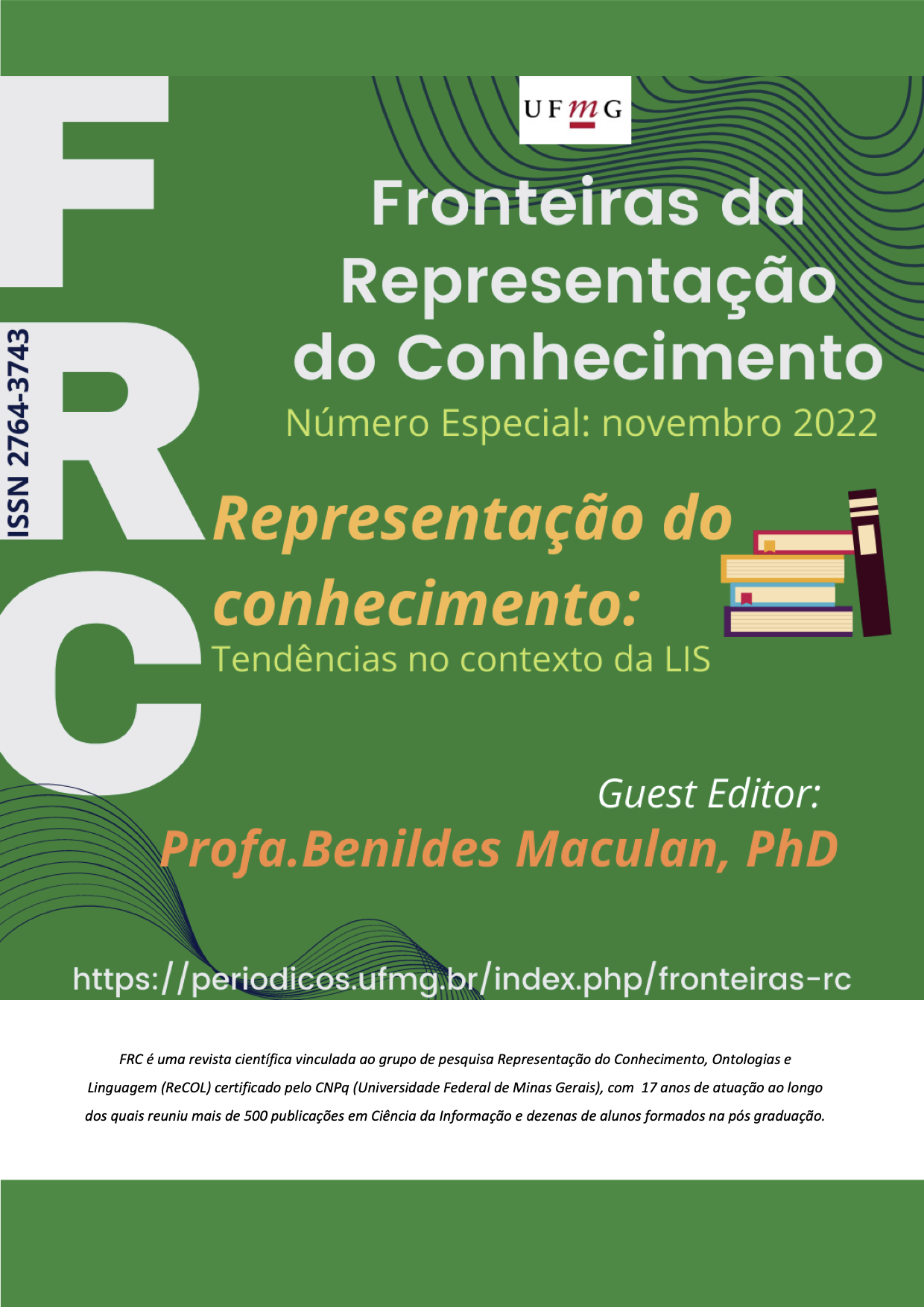Uma perspectiva metodológica para a elaboração de instrumentos terminológicos the relevance of definitions
Main Article Content
Abstract
Within Library and Information Science, Knowledge Representation is
the field of expertise that contributes with theoretical and methodological bases to
terminological instruments construction. Under this focus, from a perspective that
allows the understanding of object, procedures for the elaboration of such
instruments are discussed; as a consequence, from an ontological commitment its
related concepts are achieved. In this paper one aims at demonstrating a certain
modus operandi for elaboration of such instruments emphasizing the role of
definition. Issues concerning its role in such environment goes through the
following aspects: 1) emphasizing the onomasiologic approach in the elaboration
of definitions; 2) making the proposed methodology explicit concerning the
identification of elements in a definition as well as procedures for its elaboration
and the reading of definitions found in literature, and 3) talking about the
information products that benefit from this methodology beyond other
terminological instruments aimed at. The form of the approaching such issues is
based on narrative method of qualitative nature. Narrative is a research method
and at the same time the phenomenon studied; it produces a written record that
allows the narrator to take a position as an author and as a reader of narratives
experienced and lived. Finally, it is considered that definition has a fundamental
role in the construction of terminological instruments and also that the
information professional, as a classificationist, be equipped with theoretical and
methodological bases for the construction and use of such instruments.
Article Details
Issue
Section

This work is licensed under a Creative Commons Attribution 4.0 International License.
From: https://creativecommons.org/licenses/by/4.0/
You are free to:
- Share — copy and redistribute the material in any medium or format
- Adapt — remix, transform, and build upon the material
- for any purpose, even commercially.
- The licensor cannot revoke these freedoms as long as you follow the license terms.
Under the following terms:
-
Attribution — You must give appropriate credit, provide a link to the license, and indicate if changes were made. You may do so in any reasonable manner, but not in any way that suggests the licensor endorses you or your use.
- No additional restrictions — You may not apply legal terms or technological measures that legally restrict others from doing anything the license permits.
Notices:
- You do not have to comply with the license for elements of the material in the public domain or where your use is permitted by an applicable exception or limitation.
- No warranties are given. The license may not give you all of the permissions necessary for your intended use. For example, other rights such as publicity, privacy, or moral rights may limit how you use the material.


